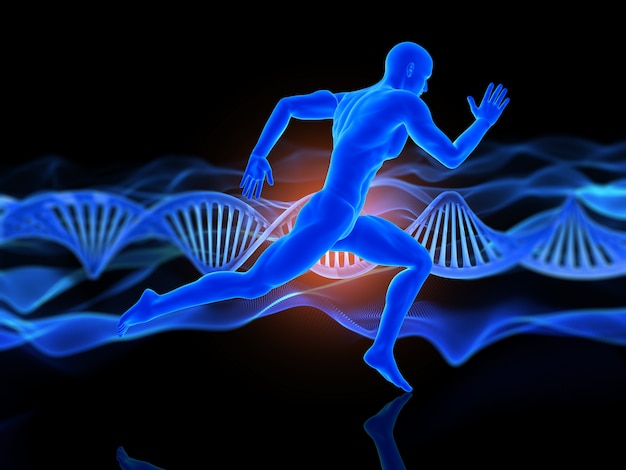Building muscle isn’t just about lifting weights and eating protein. For beginners, one of the most overlooked yet powerful factors in muscle growth is hormonal balance. Hormones like testosterone, growth hormone, cortisol, insulin, and thyroid hormones play pivotal roles in how your body builds, repairs, and maintains muscle tissue.
When these hormones are in harmony, your body becomes a lean, efficient muscle-building machine. But when they're out of balance—due to poor sleep, chronic stress, or improper nutrition—your progress stalls, no matter how hard you train.
Muscle growth, or hypertrophy, occurs when muscle fibers are damaged during resistance training and then repaired and strengthened during recovery. This process is heavily influenced by hormones:
Balancing these hormones creates the ideal internal environment for muscle growth—especially crucial for beginners who are just laying the foundation.

Sleep is the most powerful natural hormone optimizer. During deep sleep, your body releases growth hormone and testosterone, both essential for muscle repair. Poor sleep increases cortisol and reduces insulin sensitivity, sabotaging gains.
Progress Check: Track sleep duration and quality for two weeks using a journal or wearable. Aim for consistent bed and wake times. If you wake up tired or feel sluggish, adjust bedtime or reduce screen time before bed.
Chronic stress elevates cortisol, which breaks down muscle and increases fat storage—especially around the abdomen. High cortisol also suppresses testosterone and weakens immune function.
Practice daily stress-reduction techniques:
Progress Check: Rate your daily stress on a scale of 1–10. Aim to reduce average stress levels by 2–3 points over 30 days. Notice improvements in energy, mood, and workout performance.
Nutrition directly influences hormone production. Focus on whole, unprocessed foods rich in healthy fats, quality protein, and complex carbohydrates.
Key dietary tips:
Progress Check: Log your meals for one week. Are you hitting protein targets? Are you eating enough healthy fats? Adjust based on energy levels, recovery speed, and strength gains.

Overtraining spikes cortisol and suppresses testosterone. Beginners should focus on compound movements (squats, deadlifts, presses) 3–4 times per week with at least one full rest day.
Include active recovery—light walking, swimming, or mobility work—to enhance circulation and reduce inflammation.
Progress Check: Track workout performance weekly. Are you lifting heavier or with better form? Are soreness and fatigue manageable? If not, reduce volume or add a rest day.
Alcohol lowers testosterone, disrupts sleep, and increases estrogen in men. Limit intake to 1–2 drinks per week.
Avoid endocrine disruptors found in plastics (BPA), pesticides, and certain personal care products. Use glass containers, buy organic when possible, and check ingredient labels.
Progress Check: Audit your lifestyle habits. How many alcoholic drinks per week? Are you using plastic food containers? Make one change per week to reduce exposure.
Since you can’t see hormones directly, look for these signs of balance:
If these improve over 4–8 weeks, your hormone-balancing efforts are working.
Muscle gain isn’t just about reps and sets—it’s about creating the right internal environment. By focusing on sleep, stress management, nutrition, smart training, and lifestyle habits, beginners can naturally balance their hormones and accelerate muscle growth.
Start with one or two changes, track your progress, and build consistency. Over time, these small, science-backed habits will lead to significant, sustainable results.

Fitness

Fitness

Fitness

Fitness

Health

Wellness

Wellness

Fitness

Wellness

Fitness

Fitness

Fitness

Health

Fitness

Health

Health